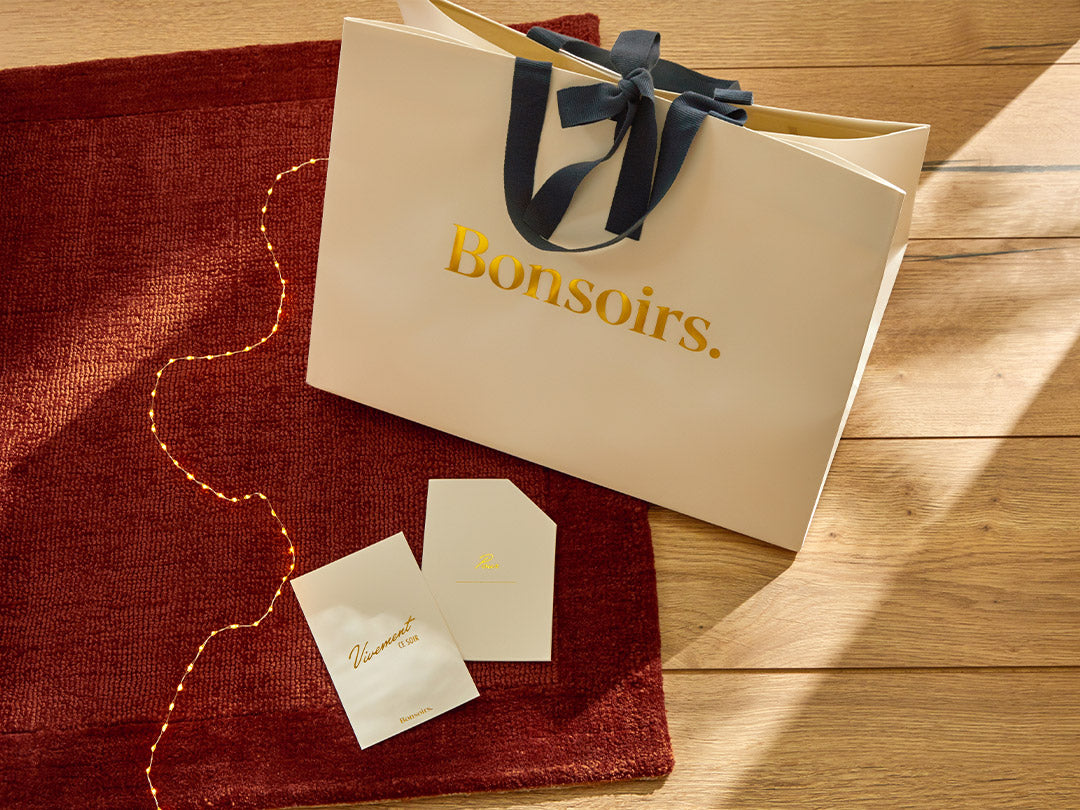Whether you have a synthetic duvet to protect or a duvet with natural duck feather and down filling, the natural fibers of our covers will offer you softness and comfort for a better night's sleep! But between cotton and linen, which material will meet your expectations? Maintenance, ironing, resistance... Discover the advantages of each of our duvet covers!
What materials should you choose for a natural duvet cover?
If you want a quality duvet cover , you have the choice between several materials. Although some brands offer bed sets made from hemp or other fabrics of natural origin, Bonsoirs specializes in cotton and linen duvet covers , two materials that have proven themselves for years. But why is there so much difference in cotton and which material to choose according to your desires? We explain in detail the advantages of each of our materials.
Cotton percale
Soft and light, the cotton percale duvet cover will be perfect for your bedding, whether chosen in a natural color or in a more vibrant color. The composition of this fabric is 100% long thread cotton , for an optimal weave of 120 threads/cm². Its density is excellent, for better resistance over time. Note that you will find a version with a washed finish with a weave of 80 threads/cm².
Cotton satin
Cotton satin is without a doubt the most popular material for a top quality bedding set ! It offers extreme softness and comfort thanks to its 200 threads/cm² weave. Of course, our duvets are guaranteed to be free of substances harmful to health and the environment. By choosing a fitted sheet and a pillowcase in the same material, you get a complete set for your bedroom.
Cotton gauze
Cotton gauze wraps your duvet with softness and elegance. Our duvet cover is here woven in double thickness for a density of 135 g/m². By choosing a product with Oeko-tex certification , you are sure to make the right choice, whether for a baby or child duvet cover .
Washed linen
Linen will offer a very natural look to your bedding. Our products are made from 100% French linen, for healthy and responsible agriculture . The linen duvet cover is assembled in Portugal in a workshop with ancestral knowledge for quality manufacturing. Its density is 160 g/m².
What are the advantages of a natural duvet cover?
Unlike a mattress or a duvet, the cover is just a simple envelope, it has no filling. However, its choice is crucial if you want to enjoy a good night's sleep. Synthetic duvet covers often make you sweat because they trap moisture. By choosing a breathable material , you gain comfort by regulating your body temperature. A wise choice to avoid finding yourself swimming while sleeping!
When purchasing bed linen for children or adults, it is more appropriate to choose a quality natural duvet cover. Although the synthetic cover generally has a lower cost, it will however be of much lower quality. This means that its lifespan will be limited. A well-made duvet cover can be kept for up to 15 years without any worries! Furthermore, they are easy to maintain since they can be put in the washing machine.
If you don't like ironing your duvet cover, sheets and pillowcases, opt for a washed linen bedding set . This material creates pretty folds when washed, which gives a very cozy look to your bedroom. In both winter and summer, this duvet cover can be used, as it is breathable and therefore will not trap moisture in your bed!
How often should a duvet cover be washed?
If you usually shower in the morning, just before you leave for work, it's best to wash your bed sheets every week . On the other hand, if you shower in the evening just before going to bed, you can keep your duvet cover for another week before putting it in the washing machine. Note that in summer people generally sweat more, which can shorten the frequency of washing your cover and sheets…
You will like also…
The differences between synthetic and natural duvets



